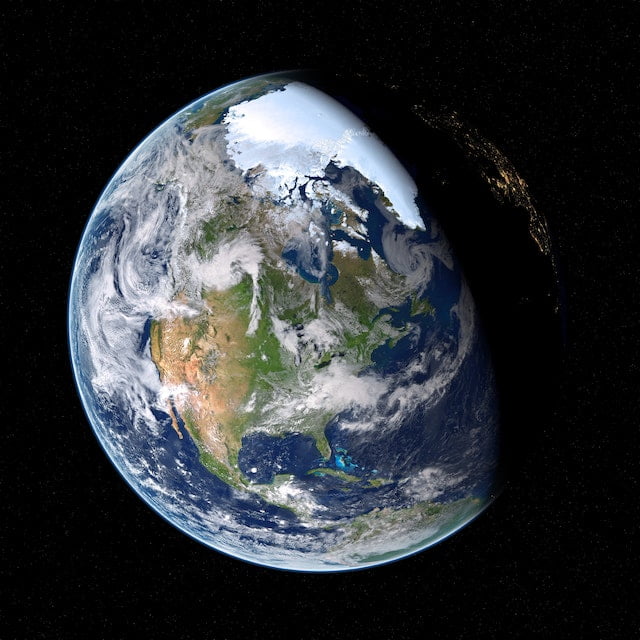Sometimes, it is easy for us to forget that we are living on a planet that is a tiny bit of the universe we are surrounded with. Even if you tried to talk with the kids about the planets and solar system, they would stare at you blankly, as this may be a very demanding topic for them to comprehend. However, learning about planets and our extraterrestrial surroundings can be really inspiring for them and can even awaken their passion for astronomy, ignite their vivid imagination, and encourage a long-term fascination with stuff and changes within outer space. The natural curiosity of children will inspire them to conduct heated research and make them eager to find out as much as they can about our universe and everything in it. If you just show them the moon and all of the stars, ask them what they see, and listen to the most amazing questions you will ever encounter. So, we’ve come up with some creative ways for you to teach your kids about the solar system and planets. We promise it would be tons of fun for both.

Table of Contents
Teach Them Planets in Order
You should teach your children about the planets in the solar system, starting with the first planet, the one that is closest to the sun – Mercury. One of the best methods is to teach your little ones about the planets in order, which will help them memorize everything about the planets better. It is similar to teaching the alphabet. It is vital to review everything you study. For the revision, it would be interesting to use illustrations, drawings, and posters.
Use the Videos As Your Ally
Why not use modern technologies for projects like this? It is inevitable that you will start using the internet in your studies at some point, and teaching your children how to use it smartly is probably one of the most difficult tasks you will encounter as a parent. So, selecting a couple of interesting videos explaining the solar system to kids, talking about the sun, stars, moon, and planets, and playing them songs about the solar system will help them be more interested in learning the details about the solar system. Luckily, today, there are many free songs about the solar system that you can find online. However, you must always double-check the songs and videos you want to play in front of your children or in the classroom and see if there are some things that may trigger them.

Solar System Worksheets and Crafts
Depending on the age of your child, you might want to think about assigning them some small projects to do. The interesting ones may be the worksheets and crafts, which are the types of activities that can be created for any age. Some of the most common exercises include coloring the planets and putting them in order together or even creating a DIY mobile solar system. Some easier activities are practicing recognition of the celestial objects by writing the names on them or just the initial letters. So, M would be planted on the picture of the moon and A on the picture of the astronaut. Of course, if you find it necessary and you think your child may manage it, you can even create somewhat larger models of the solar system. On the other hand, you can make this whole project a group activity, Invite friends of your child/children over and use the flashcards with the planets on them, or you can split children into groups and play the guessing game. Give them the challenges of the solar system, such as who will put the planets in order in a shorter period of time. It cannot be done without small awards, so make sure to give thought to this as well.
Look at the Stars
You need to make your child environmentally aware and teach them how to take care of our planet. However, nothing brings more importance to the world than allowing yourself to look up and see the stars. You can teach your children that stars can be seen only at night and that the only one we can see during the day is the sun. Also, you can tell them that our planet’s movements influence changes in day and night, weather, and the flow of water. You can present our space as a place full of wonders, and indeed, it is.
Wrap up the Lessons About the Solar System
You should not skip the wrap-up as it is one of the most important parts of your study journey and helps your child apply what they have learned. Also, you will have a chance to see everything they learned. We have already mentioned videos as very useful study materials, and these should not be skipped for this part either. Specifically, instead of using the one you used for teaching them about the solar system, you should use a tad more demanding videos. Not only will they be happy to see their own progress, but they will also be very eager and excited to learn more about the exciting solar system. It would be a task for you to find the higher level videos where clips about the solar system, galaxies, stars, and planets can be watched by small children. Bear in mind that colorful and interesting graphics with a friendly tune in the background will be a smooth introduction to demanding concepts.
The Test
As you will have the opportunity to assess your children’s knowledge of this topic, you should also devise a test method that will allow you to assess their ability to discuss it. For instance, smaller children can be asked to identify celestial objects such as stars, the sun, Earth, the moon, and others. On the other hand, older children can also be asked about the planets, to put them in order, or to make a small presentation about the topic you assigned. Another interesting way is to ask them to create a report, story, model, or song so you can test out their abilities. Quizzes also make an efficient tool for testing their knowledge.
The solar system has been one of the favorite topics for children ever since. It is the concept that triggers their creativity, and they will have the most wondrous questions about the celestial object. Nowadays, with the rise of the internet, children even learn about solar systems on their own. Namely, there are little kids who know every stage of star formation, and some other small yet brilliant minds can name all of the moons in the solar system. And, yes, we do mean the names that consist of letter and number combinations.




